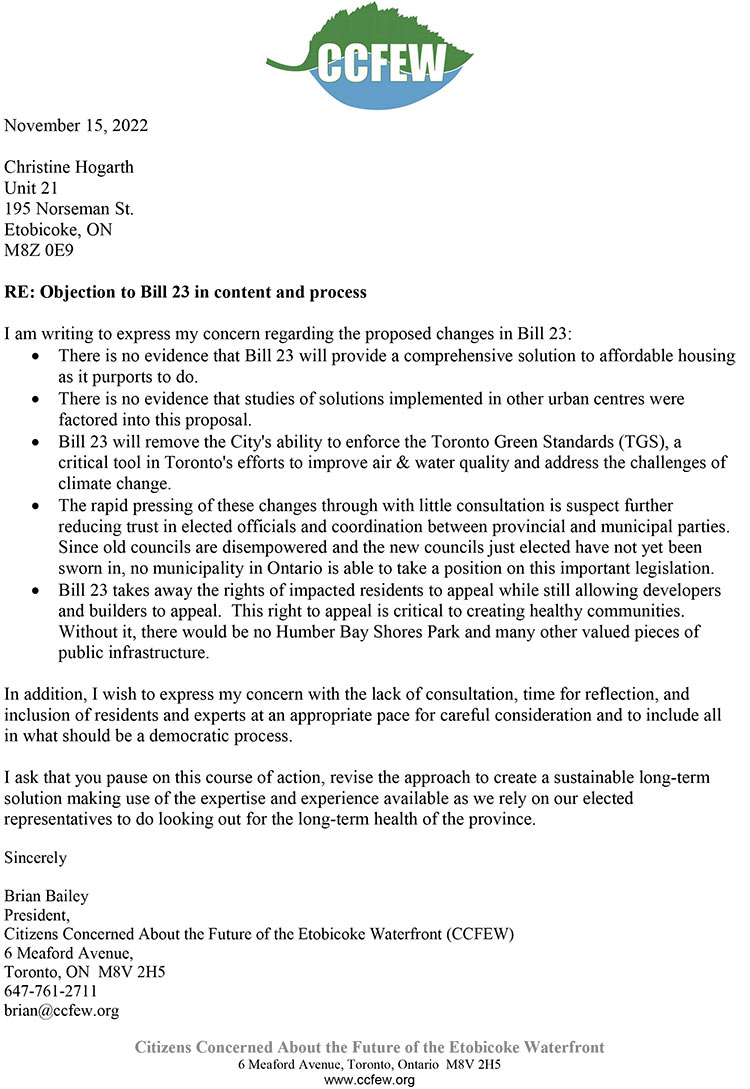|
November 15, 2022
Bill 23, the More Homes Built Faster Act, 2022 Has Serious Environmental Consequences
There are many reasons to be concerned about Bill 23 currently before the Ontario Legislature. There are several that are of direct concern to CCFEW because of their environmental implications. Most significant is that it would remove the City’s authority to enforce the Toronto Green Standards (TGS). Established in 2010, the TGS’s address the City’s environmental priorities to:
- Improve air quality and reduce the urban heat island effect
- Reduce energy use and greenhouse gas emissions from new buildings while making buildings more resilient to power disruptions, and encourage the use of renewable and district energy
- Reduce stormwater runoff and potable water consumption while improving the quality of stormwater draining to Lake Ontario
- Protect and enhance ecological functions, integrate landscapes and habitats and decrease building-related bird collisions and mortalities
- Divert household and construction waste from going to landfill sites.
Among the TGS’s performance standards are requirements for bird collision deterrence and light pollution. During the spring and fall bird migrations, each of Toronto’s 950,000 buildings kills between 1 to 10 birds.
Bill 23 removes third-party appeals. This means that private citizens or citizen groups will have no right to appeal harmful decisions. This is of particular significance to CCFEW, considering that our group was formed to fight development proposals in the former “motel strip” that would have prevented public access to the waterfront. Without the third-party right to appeal, Humber Bay Shores Park would not exist.
The bill has already had second reading. Written comments are being accepted until 7pm, November 17th.
Please write to your MPP, Christine Hogarth and submit your comments to the committee as well at https://www.ola.org/en/apply-committees.
If you want you can use CCFEW’s letter as a template.
|
